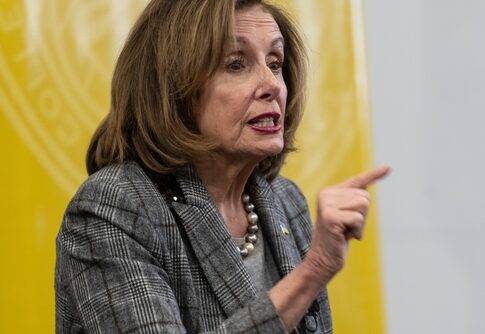Paul Pelosi, husband of former House Speaker Nancy Pelosi, is under scrutiny after unloading over $500,000 in Visa stock just weeks before the Department of Justice (DOJ) announced an antitrust lawsuit against the credit card giant. The timing of this transaction, which took place on July 3, 2024, has raised eyebrows, particularly since Visa's stock tumbled by 5.5% following the lawsuit's announcement in September. Many are questioning whether the Pelosis benefited from insider information, an accusation that has surfaced repeatedly over the years.
The DOJ’s lawsuit alleges that Visa has monopolized the U.S. debit card market, controlling more than 60% of debit transactions and collecting over $7 billion in annual fees. The complaint claims Visa uses exclusionary practices to maintain its dominance, penalizing companies that seek alternatives.
Below you’ll find our tracking of the questionable timing of Nancy Pelosi’s husband’s stock trades. Pelosi again cited for her husband unloading $1M in Visa shares a month before the Justice Dept. is now poised to sue #Visa in a major antitrust operation.
He sold $5M worth… https://t.co/kMURkeXi0C pic.twitter.com/TF97xIVIPI
— Elizabeth MacDonald (@LizMacDonaldFOX) September 24, 2024
The antitrust action marks the culmination of a years-long investigation, which makes Paul Pelosi's stock sale all the more suspicious. According to public filings, Pelosi sold 2,000 shares of Visa valued between $500,000 and $1 million.
Critics argue that this is yet another example of the Pelosis profiting from their access to privileged information. Although there is no definitive proof of insider trading in this case, the suspicious timing of the trade has fueled ongoing concerns about how members of Congress and their families handle stock trades.
Nancy Pelosi’s husband sold more than $500K worth of Visa stock — just weeks before DOJ’s antitrust lawsuit https://t.co/bDQFv9LjgV pic.twitter.com/7tyz7TzKrY
— New York Post (@nypost) September 24, 2024
Paul Pelosi has faced similar accusations before. For instance, in 2022, he sold shares of Nvidia just before Congress voted on a semiconductor bill. In 2008, Paul Pelosi participated in Visa’s initial public offering (IPO) shortly after lobbyists from Visa reportedly courted his wife to prevent regulation of swipe fees.
A spokesperson for Nancy Pelosi has denied any wrongdoing, stating that the former Speaker does not own stocks or participate in her husband's financial decisions. Nevertheless, critics have been quick to point out that the couple’s wealth has skyrocketed during Nancy Pelosi's tenure in Congress, with their net worth reaching an estimated $315 million in 2020.
The antitrust case against Visa alleges that the company manipulated the debit card market through exclusionary agreements that forced merchants and financial institutions to use Visa’s network, stifling competition. Visa also allegedly coerced potential competitors into partnerships by offering monetary incentives, further entrenching its market dominance.
Public reaction to the stock sale has been intense, with many calling for stricter regulations on congressional stock trading. The bipartisan calls for reform have been gaining momentum, especially following high-profile cases like Pelosi’s. Many Americans are questioning whether lawmakers should be allowed to trade individual stocks at all, given their access to potentially market-moving information.

